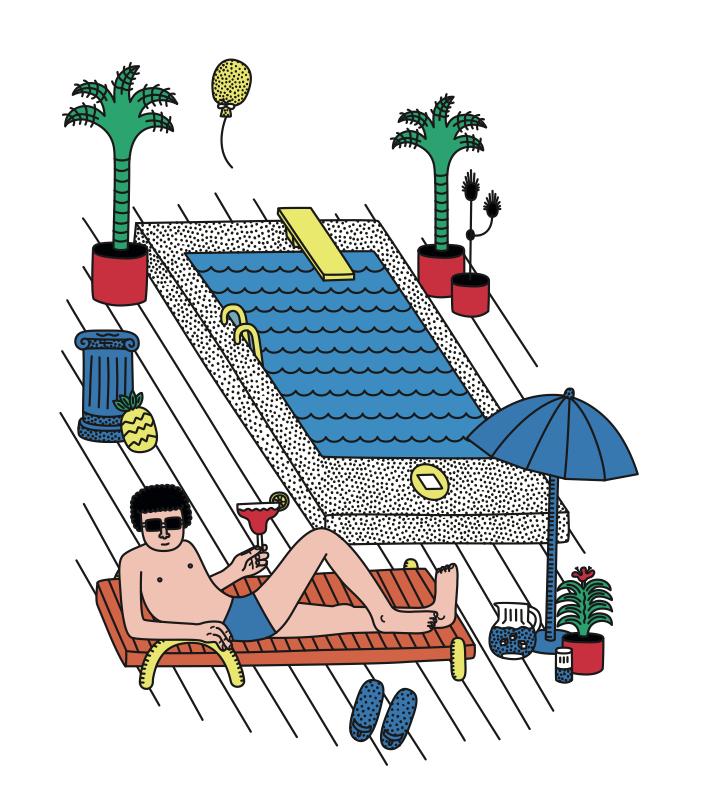A Convenient Truth
Apps are creating a new era of service that's available at the click of a button

Time is money. Yes, really. If there was ever any doubt about this, then the recent valuation of private driver app Uber at an eye-watering $18 billion should set the record straight. While some business commentators describe this massive figure as a crass over-inflation, there is good reason why Uber may well be worth every buck. It’s because the app saves time. Just click, wait (inside if you like) and your driver is there. No more loitering on street corners or trying to work out which side of the road will present an empty taxi first. In offering such a simple and helpful service – at a very modest price – Uber saves its customers an awful lot of hassle.
Uber is not the only digital development that’s wiping away wasted moments. Many of today’s soon-to-be-hyper-valued start-ups are taking a similar approach to solving everyday problems, to make life easier and eradicate dead time. An app called Bizzby, for instance, connects Londoners to professional tradespeople. Someone with a leaky toilet can look up a plumber on the app and tap to summon them to their home almost immediately; no need to finger through the Yellow Pages directory. Zeel, another convenience-driven app, introduces achy New Yorkers to licensed therapists so they can organise same-day, in-home massages; no need for prolonged Googling.
Services that save people time have always existed, of course. Previously, however, they came at a premium. Only the very wealthiest had access, at a cost of thousands, to concierge services and personal assistants that made things happen when they needed to. But then well-designed technology also started to offer some of these instant services. Consider how the advent of on-demand media – film and television in particular – has entirely changed our expectations of immediacy. Streaming services such as Netflix, HBO GO and the BBC’s iPlayer, which let people access movies and television content with a quick click, have all but completely eradicated the need to traipse to the local video shop or wait for something in the television schedule.
Many refer to this as the on-demand era of technology, but it’s equally the time-saving era. And it’s now happening on a wider scale, mostly thanks to mobile technology. “We’re all using technology to demand services at our beck and call. The biggest difference now is the smartphone,” says Tom Chatfield, technology theorist and author of How to Thrive in the Digital Age. “Carrying a computer all the time opens up a lot of these possibilities, and companies are making the most of it.” We're in a 'now' economy, the fact that you can tap a button on your smartphone and 60 minutes later a professional turns up is amazing. Services that save people time have always existed, of course.
Previously, however, they came at a premium. Only the very wealthiest had access, at a cost of thousands, to concierge services and personal assistants that made things happen when they needed to. But then well-designed technology also started to offer some of these instant services. Consider how the advent of on-demand media – film and television in particular – has entirely changed our expectations of immediacy. Streaming services such as Netflix, HBO GO and the BBC’s iPlayer, which let people access movies and television content with a quick click, have all but completely eradicated the need to traipse to the local video shop or wait for something in the television schedule.
Many refer to this as the on-demand era of technology, but it’s equally the time-saving era. And it’s now happening on a wider scale, mostly thanks to mobile technology. “We’re all using technology to demand services at our beck and call. The biggest difference now is the smartphone,” says Tom Chatfield, technology theorist and author of How to Thrive in the Digital Age. “Carrying a computer all the time opens up a lot of these possibilities, and companies are making the most of it.” Many refer to this as the on-demand era of technology, but it’s equally the time-saving era.
As well as companies such as Uber and Bizzby, a host of new delivery apps is proliferating too. Apps such as WunWun, Postmates and Deliv use existing courier networks in cities to offer the delivery of almost anything anyone suddenly needs, whenever they want, wherever they are – all through their smartphone. Say you are suddenly in need of a product: open up WunWun, type in the request, set a date and a time, and either choose a store or let the app pick one for you. Once the order is confirmed, that product will be with you when you said you wanted it – at no cost besides the product price itself. Uber has even partnered with WunWun to offer cars that arrive with goods such as coffee and flowers inside them.
In a sense, the mobile is now a democratic concierge device. “We’re in a ‘now’ economy,” explains Bizzby founder and CEO Rohan Sinclair Luvaglio. “The fact that you can tap a button on your smartphone and 60 minutes later a professional turns up at your door is amazing.”
And, amazing though this is, customers shouldn’t marvel too much, he adds. This level of service is now “an expectation that consumers should rightly have. Real-world problems are being solved and solid businesses are being built as a result.” Retail giant Amazon is a further source of innovation in efficiency and convenience. It revolutionised and sped up the online buying process with its one-click e-commerce – and is now attempting something even more ambitious.
It recently launched Dash, a hand-held Wi-Fi enabled plastic wand which customers can use offline to instantly re-order items. The user either speaks product names directly into the wand or waves the device over the product. The items are then immediately ordered and delivered by AmazonFresh, Amazon’s same-day grocery delivery service. You could be looking through your grocery cupboards, Wand in hand, and re-order all the items you need without having to go to a desktop or even open your mobile. Amazon is also experimenting with algorithms that will predict its customers’ purchases and order them automatically – perhaps the ultimate time-saving innovation.
And there could be more to come. “The future looks amazing,” predicts Luvaglio. “We should expect to have drones delivering time-critical medical supplies when we need them, doctors on demand, and your home devices fully connected and in sync with all aspects of your life.”
Most importantly, with all these moments we’ll free up, perhaps we will finally be able to pursue the life of leisure that enhanced technology has always promised …
Originally printed in Protein Journal Issue #13. Illustrations by Martina Paukova


